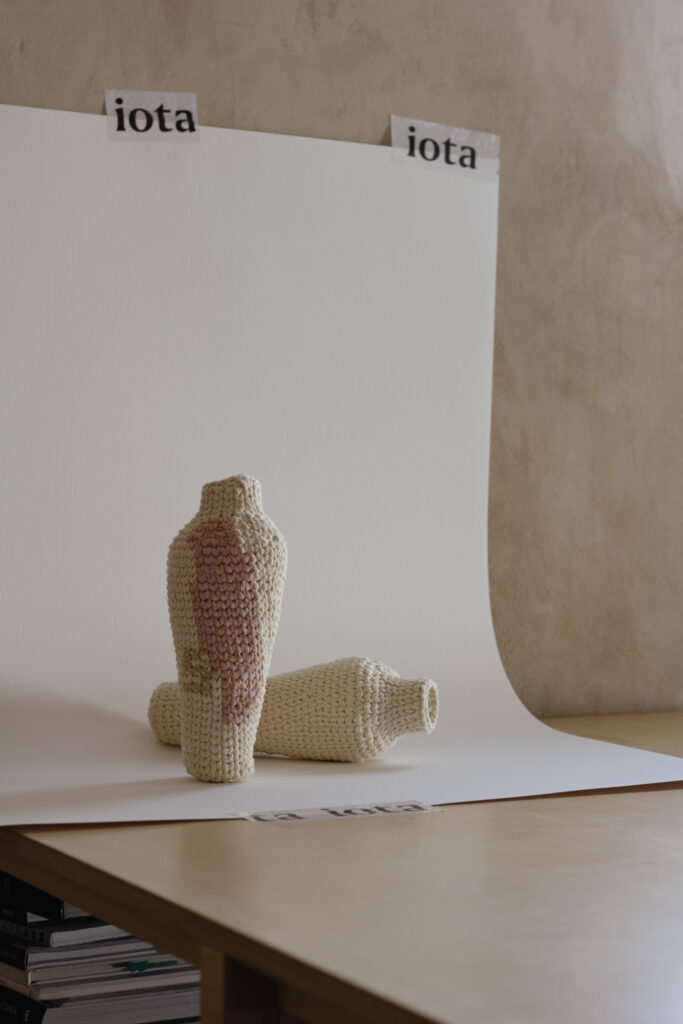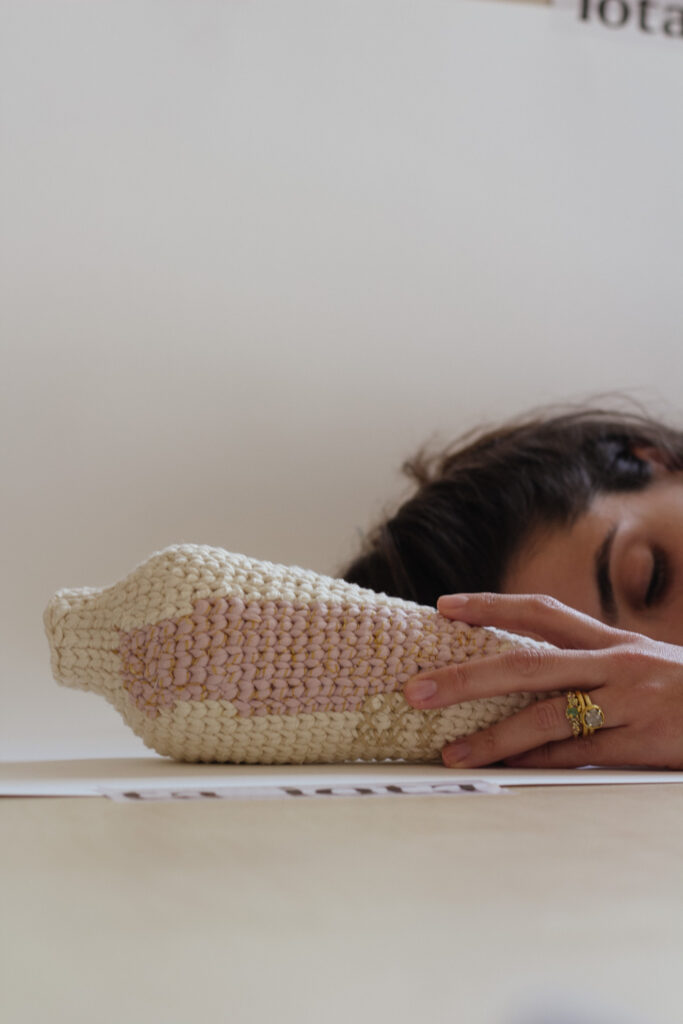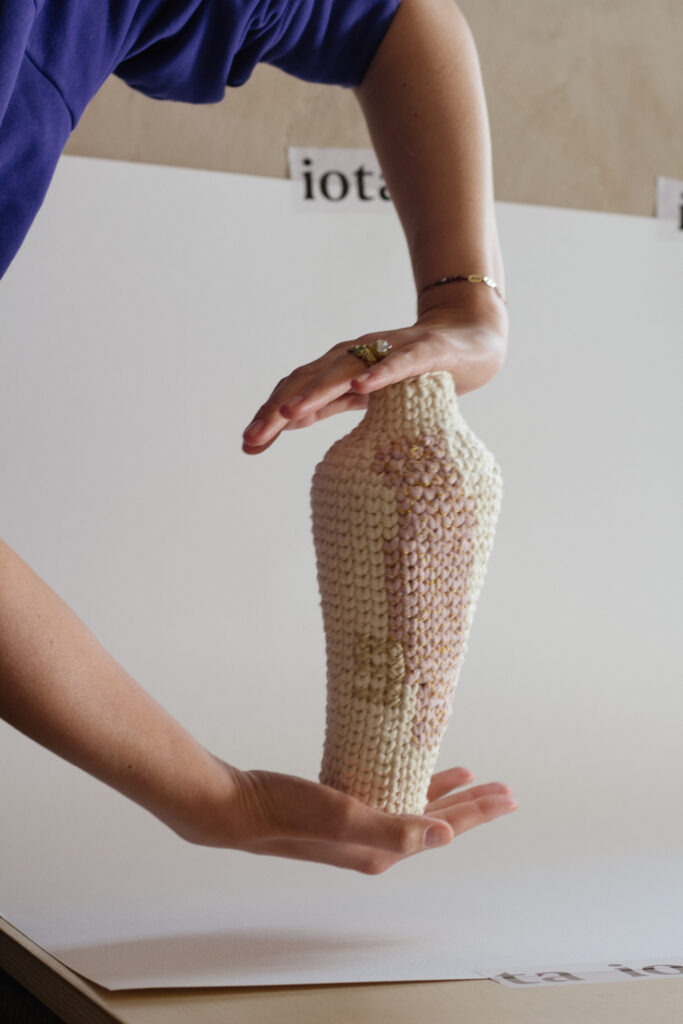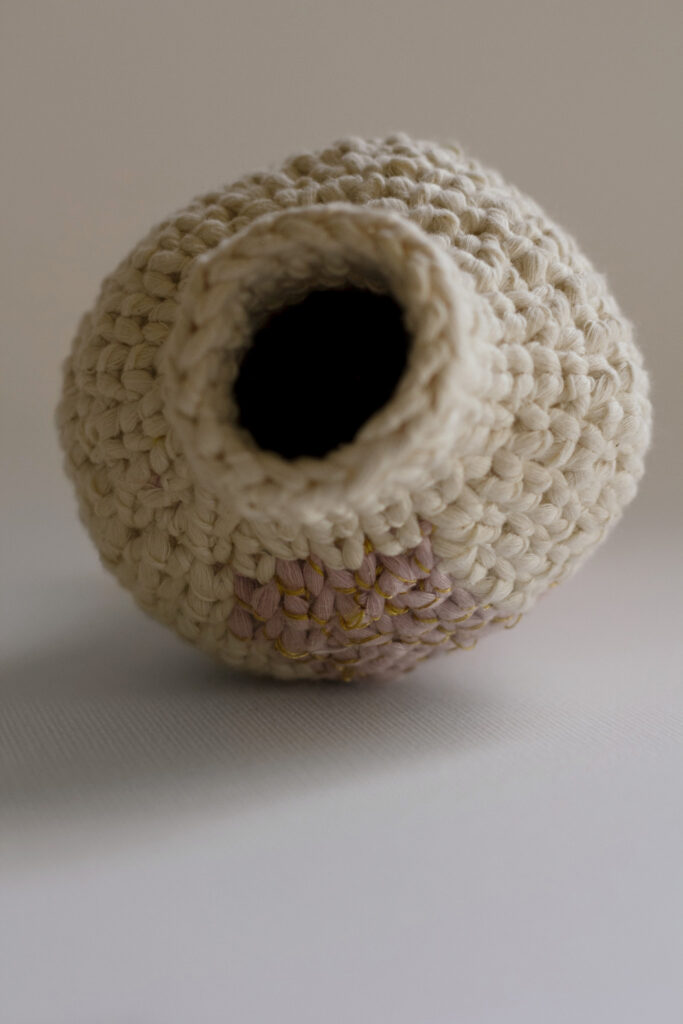Cotton Jug
The jug is a historical object, evidence of origins, of handwork, of soil. Physical evidence of the beginning of human society and its need to exist and feed itself. Like other ancient objects, its use is accompanied by human gestures. What is its function? We are still familiar with it; the jug still has a place in the everyday life of the modern person. Its use has been preserved, opposed to many other ancient objects, whose use and the gestures that followed have been lost over time.

The iota jugs are a tribute to that historic object. We chose to reproduce, experiment, and quote it through our handwork – crochet. We knitted it with raw cotton – a natural material that comes from the earth, which, like clay, can be made into a shape. But unlike clay, it remains soft and porous. The use of cotton eliminates the ancient use of jugs. What is its function? This is a question that accompanies every design process at our studio. What human gestures does it make? People seek intimacy, some inspiration, seek laughter, cry, seek valuable moments that are collected into memories.

The jug is symbolic of memory, heritage, and the importance of human gestures. To our ability as humans to create. The jug has an inner space that requests to be filled, and precisely at this time it reminds us to fill our lungs full of air and our hearts full of everything that makes us thrive.


I think about forgotten gestures, the multiple signals and words of grandparents, lost little by little, not inherited, fallen one after the other off the tree of time. Tonight I found a candle on a table, and as a game I lit it and walked along the corridor with it. The breeze stirred up by my motion was about to put it out, then I saw my right hand come up all by itself, cup itself, protect the flame with a living lampshade that kept the breeze away. While the flame climbed up again alert, I thought that the gesture had belonged to all of us for thousands of years, during the Age of Fire, until they changed us over to electric lights.
I think about those objects, those boxes, those utensils that sometimes would turn up in storerooms, kitchens or hidden spots, and whose use no one can explain anymore.
The vanity of believing that we understand the works of time: it buries its dead and keeps the keys. Only in dreams, in poetry, in play – lighting a candle, walking with it along the corridor – do we sometimes arrive at what we were before we were this thing that, who knows, we are.
From Hopscotch by Julio Cortázar




